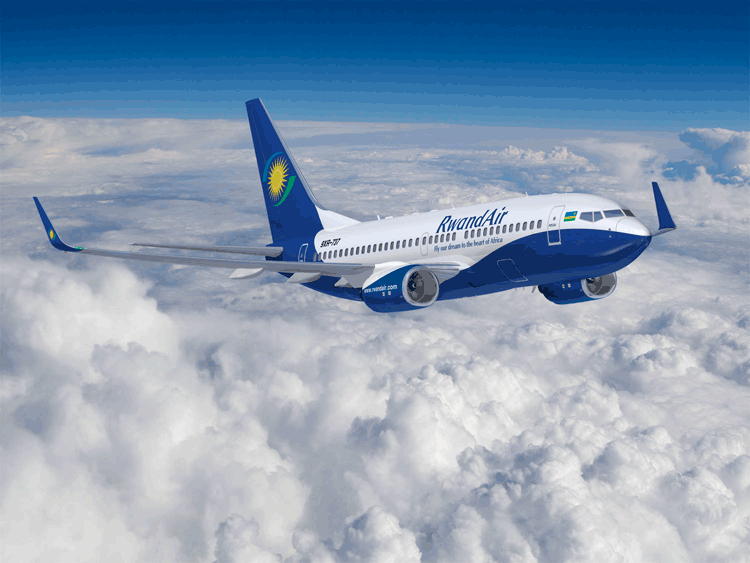
RwandAir makes changes ahead of resuming flights

Rwanda’s National carrier, RwandAir prepares to resume flights on August 1 with changes aimed to improve the safety of passengers amid the COVID-19 pandemic.
The airline will be making adjustments on a number of inflight aspects to reduce physical contact and chances of reductions of contracting the virus.
According to Gobena Mikael, Chief Commercial Officer of RwandAir, the resumption will be characterized by adjustment to improve both passenger and crew safety, he said while speaking at a webinar on the impact of COVID-19 on the East African Aviation sector convened by the East African Business Council.
The move is also aimed at ensuring passenger confidence in flights following weeks of halted operations.
Elimination of inflight reading material is among the changes Mikael noted to avoid physical contact.
Mikael stated that “for airline meals and snacks services, there is going to be a significant amendment from regular service to serving bottled drinks and packed snacks consequently reducing contacts between crew and passengers.”
While this might be considered as reduction of level of service, it is geared at improving the safety of the crew and passengers during flights, he noted.
RwandAir will adopt a lunch box type hot meal as opposed to the regular dinner, lunch and drinks services.
“For materials such as headsets, duvets, headrests they will be sanitized and resealed. At the end of the trip, we will take them out and put new ones. Every seat belt, tray, and everything that is touched we have devised mechanisms to sanitize and clean them,” he said.
“We have everything in place at the moment, temperature checks, social distancing measures and signs, desk shields and visors, everyone is required to wear a mask, gowns for the crew,” he added.
There being widespread fears that the cost of tickets will go up, Mikael noted that as opposed to costs going up, they are likely to go down with increased competition and confidence building.
“The costs will go down, how can we expect to encourage people and bring confidence? We have to look at our customers as if they are in power, they don’t have to travel, and they have to feel safe,” he said.
The airline will introduce bonus mileage, flexible pricing and refunds without charge among other things to draw customers.
On regional airlines survival and recovery, he said that the region’s airlines have to work together in multiple aspects such as cooperation and sharing information to make sure they can stay ahead of the pandemic and to avoid having to halt operations in the event confirmed cases increase.
With closer collaboration, he said that the regional airlines will be able to learn patterns of the ailment and curb it without much interruption to operations.
The same cooperation, he said will serve the purpose in avoiding the onslaught of smaller regional airlines by major global airlines.
As opposed to protectionism, he proposed competition on the basis of aspects such as quality and delivery.






